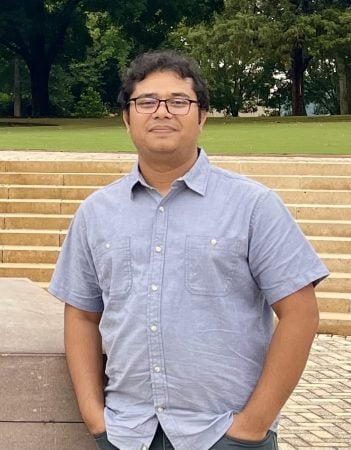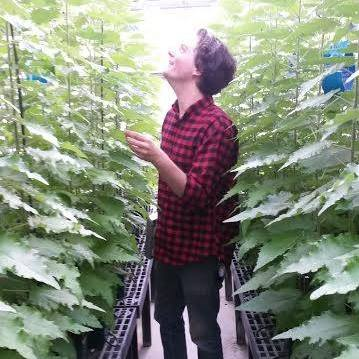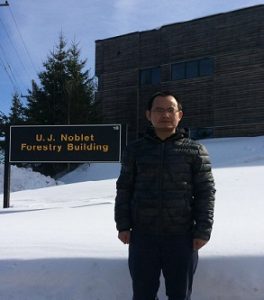In the summer of 2021, I joined as a Ph.D. student in Forest Molecular Genetics and Biotechnology and started working as a Graduate Research Assistant on a USDA-NIFA project at the Kuelheim Lab at the College of Forest Resources and Environmental Science, Michigan Tech. By this time, I completed Graduate Certificate in Applied Statistics and Data Science Foundations. I am going to complete a course-based M.S. in Data Science with bioinformatics domain in Spring 2024.
My research interest includes the study of the genetic basis of plant evolution and adaptation in changing climate using genetics, genomics, and bioinformatics approaches. In my Ph.D. dissertation “Novel methods of tree improvement in the genomic era”, I performed a meta-analysis to find out the suitable tree genetic improvement methods appropriate for different contexts and provided a framework for future tree genetic improvements. Through doing a comparative genome-wide association studies using a reference genome of Eucalyptus grandis, an in vitro generated Eucalyptus polybractea pseudo-reference, and a hybrid assembled E. polybractea reference genome, I am investigating if we can use pseudo-references or even just related genome as the reference genome for tree genetic studies. I am also investigating the transcriptomic regulation of foliar terpene-related genes in Eucalyptus camaldulensis to understand how transcriptional variation in E. camaldulensis influence terpene production and local adaptation. I also working on de novo assemblies of Quercus ellipsoidales genome to investigate structural variation between Q. ellipsoidales and Quercus rubra genome to identify the specific genomic regions related to climatic adaption and species diversification in oaks. Overall, my research provides an overview of trends of using tree genetic improvement methods and how the advanced methods and technologies help in achieving the goal of tree genetic improvement program.
I would like to express my profound gratitude to the Graduate Dean Awards Advisory Panel and Dean for awarding me the Doctoral Finishing Fellowship. This fellowship has been a tremendous source of inspiration and support for me, and it has marked an important turning point in my academic and professional career. My sincere appreciation to my advisor Dr. Carsten Külheim for his invaluable guidance, support and expertise which has been instrumental in shaping me for my future profession. I would also like to extend sincere gratitude to my committee members Dr. Victor Busov, Dr. Stephen Techtmann, Dr. David Kainer, and program coordinator Dr. Molly Cavaleri as well as lab members, friends and family, whose continuous support and help have been vital for my accomplishment during my studies at Michigan Tech. I am excited for the learning and growth that awaits me, which I know will greatly influence my future pursuits.


